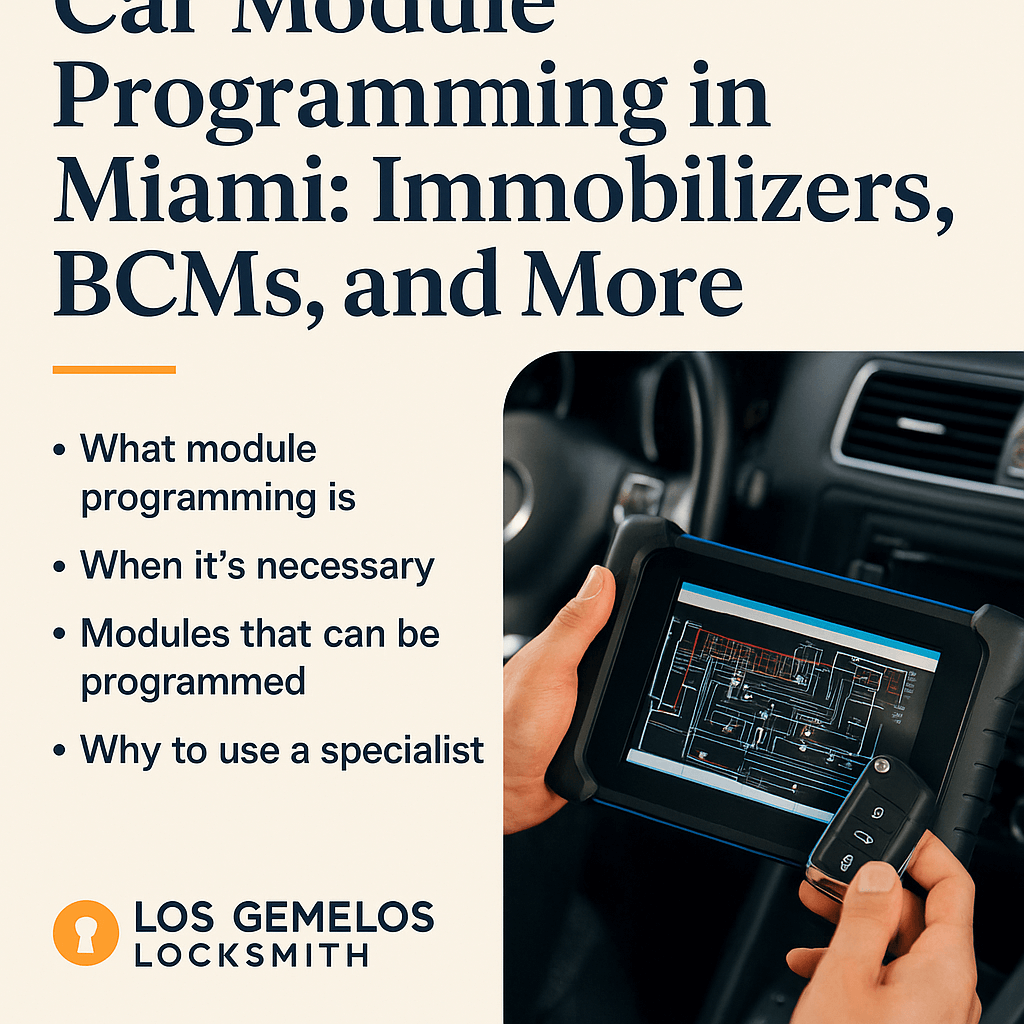Expert Locksmith Solutions for a Safer Miami
Fast, Affordable, and Trustworthy: Choose Los Gemelos Locksmith in Miami
Call (305)860-1440 For 24/7 Service
Common Nissan Control Module Issues: What You Need to Know.
As a Nissan owner, it’s essential to stay informed about potential issues that may arise with your vehicle’s critical components, such as the control module. The Nissan control module, also known as the engine control module (ECM) or powertrain control module (PCM), acts as the brain of your car. It manages and controls various functions, including fuel injection, ignition timing, and transmission shifting. In this article, we’ll discuss some common Nissan control module issues, their symptoms, and the importance of timely diagnosis and repair.
Poor Engine Performance
A malfunctioning Nissan control module can lead to poor engine performance, manifesting as sluggish acceleration, decreased fuel efficiency, and rough idling. In some cases, the engine may stall or refuse to start altogether. These issues can be caused by a variety of factors, such as faulty sensors or damaged wiring. If you experience any of these symptoms, it’s essential to have your control module diagnosed by a professional technician.
Transmission Shifting Problems
The Nissan control module plays a critical role in managing your vehicle’s transmission, ensuring smooth and timely gear shifts. When the control module is experiencing problems, you may notice issues like erratic shifting, delayed gear engagement, or the transmission going into limp mode. In some instances, the check engine light may also illuminate. These issues can significantly impact your driving experience and may lead to more severe transmission damage if left unaddressed.
Faulty Emissions Controls
A properly functioning control module is essential for maintaining your Nissan’s emissions controls, which help reduce air pollution and improve fuel efficiency. A malfunctioning control module may cause your vehicle to produce higher emissions levels, leading to a failed emissions test or even causing the catalytic converter to become damaged. Symptoms of faulty emissions controls can include poor fuel economy, decreased performance, and an illuminated check engine light.
Electrical Issues
The Nissan control module relies on a complex network of sensors, wiring, and other electrical components to carry out its functions. Damaged or corroded wiring, faulty sensors, or other electrical issues can cause the control module to malfunction, leading to a variety of problems ranging from minor annoyances to critical system failures. Common electrical issues related to the control module can include intermittent electrical faults, unresponsive accessories, or even a completely dead battery.
The Importance of Timely Diagnosis and Repair
If you suspect that your Nissan control module is experiencing issues, it’s crucial to seek professional help as soon as possible. Ignoring these problems can lead to more severe damage, expensive repairs, and even pose a safety risk. A qualified technician can accurately diagnose the cause of the problem and recommend the most effective solution, whether it’s a simple repair or a complete control module replacement.
In conclusion, staying informed about common Nissan control module issues is vital for maintaining your vehicle’s performance, efficiency, and safety. If you experience any of the symptoms mentioned above or have concerns about your control module’s health, don’t hesitate to seek professional assistance. Regular maintenance and timely repairs can help keep your Nissan running smoothly and reliably for years to come.






